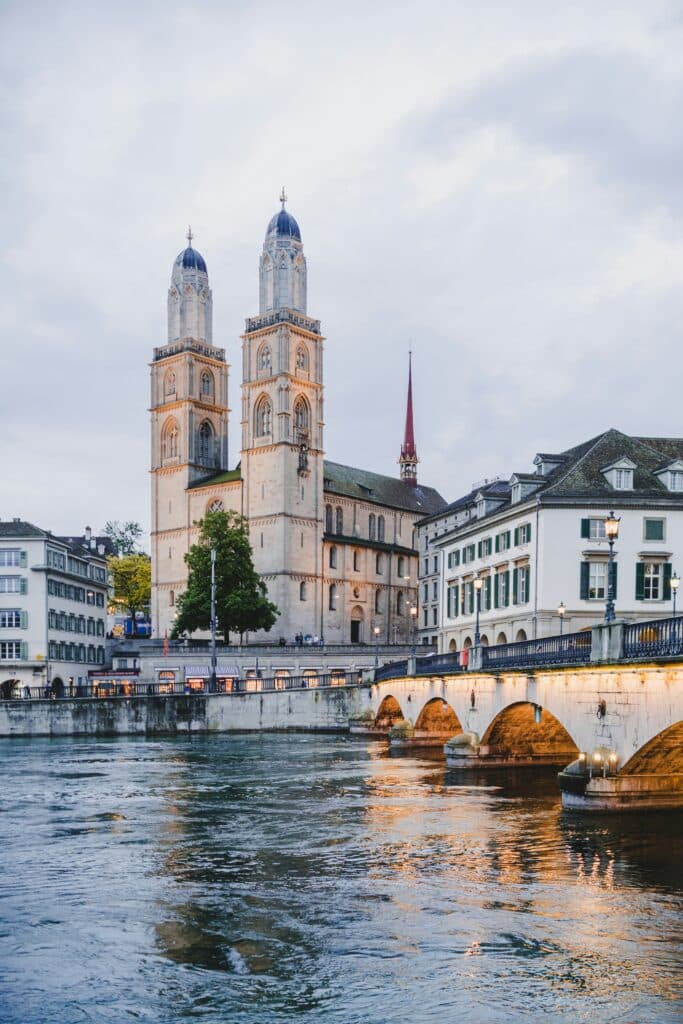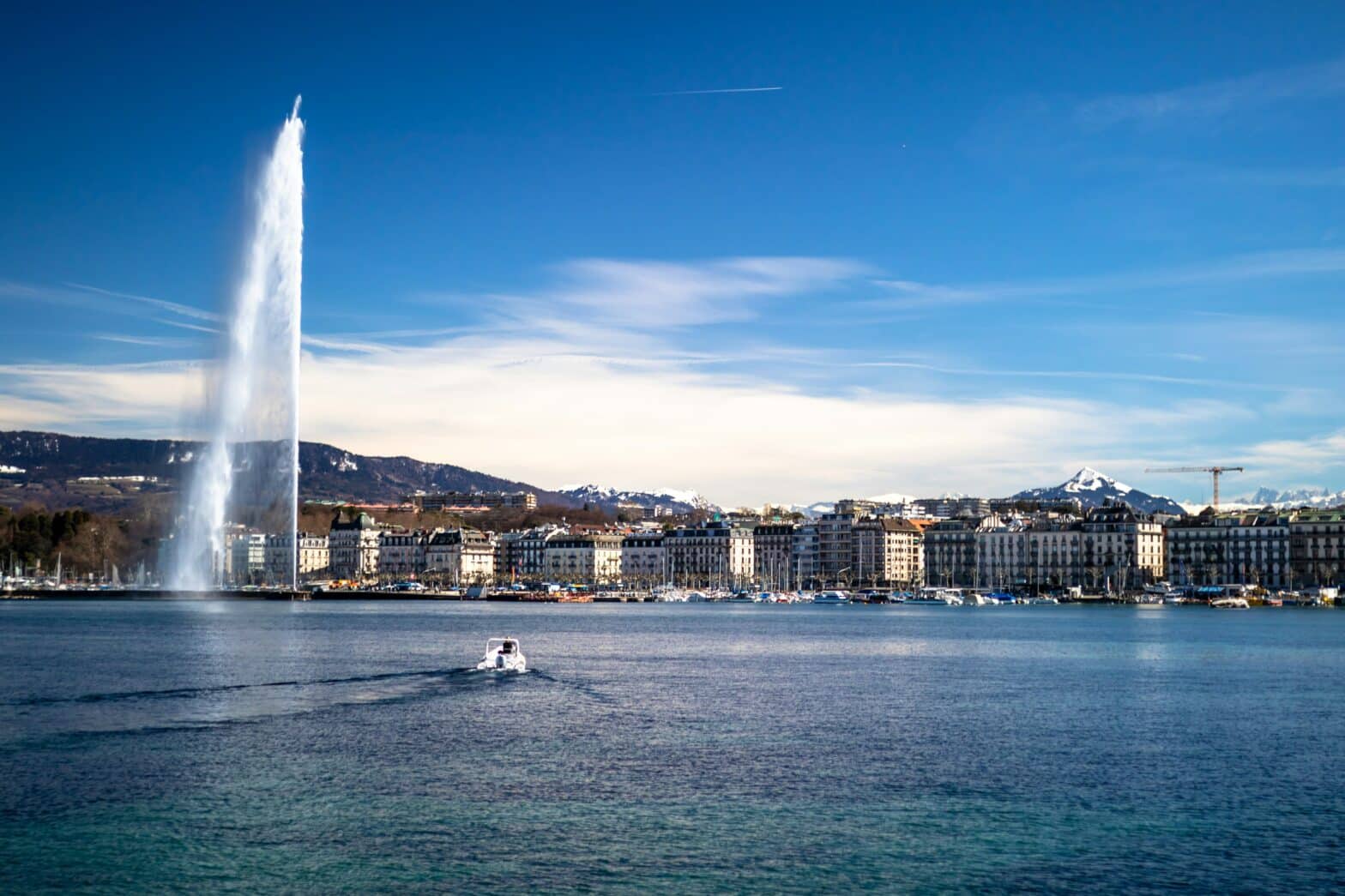Switzerland consistently ranks among the world’s most popular destinations for expatriates, and Geneva is a prime example. Home to nearly 190 nationalities, Geneva is truly an international city; a haven for expatriates from around the world who come to work for UN agencies, private banks, multinationals, and the luxury watchmaking industry.
While Geneva is renowned for its high cost of living, its unparalleled quality of life, excellent infrastructure, and multicultural environment make it an irresistible destination. This guide aims to assist you in preparing for moving to the shores of Lake Geneva. For a broader perspective on expat life across the country, read our full guide on living as an expat in Switzerland.
Life in Geneva: the pros, the cons
The advantages
- Quality of Life: Geneva offers an excellent living environment, modern and efficient infrastructure, quality health services, a rich cultural heritage, safety, and cleanliness throughout the city.
- Career Opportunities: The city presents numerous job opportunities across various industries, including private banking, international organizations, and international trade.
- Competitive Salaries: Salaries in Geneva are significantly higher compared to the European average, allowing expatriates to live comfortably. The average annual salary exceeds CHF 180,000.
- Economic and Political Stability: Switzerland’s stable economy and political landscape provide a secure environment for residents.
- Multicultural Environment: Geneva is Switzerland’s most multicultural city, with 196 nationalities represented, fostering a diverse and inclusive community
- Tax Advantages: The city offers favourable tax rates for individuals and companies, attracting many foreign entrepreneurs and employees.
The disadvantages
- High Cost of Living: Along with Zurich, Geneva is one of the world’s most expensive cities.
- Housing Challenges: Affordable housing is scarce, making the search for accommodation competitive and often costly.
- Climate Considerations: Winters can be marked by fog and snow, leading to several months of cold weather.
- Conservative Practices: The city exhibits a degree of conservatism, reflected in the rigidity of its institutions and the limited opening hours of shops.
Geneva versus Zurich
Both Geneva and Zurich are among the world’s most expensive cities. However, Zurich has overtaken its French-speaking sister in the ranking of the most attractive cities for expatriates, coming sixteenth while Geneva is in thirtieth place. This is likely because Zurich, as Switzerland’s financial and economic center, offers more career opportunities with higher salaries and relatively lower accommodation prices.
Geneva distinguishes itself through its rich historical and cultural heritage, making it Switzerland’s most cosmopolitan canton. Both cities are lakeside, offering exceptional living environments and stunning scenery.
Language may influence your choice: Geneva is predominantly French-speaking, while Zurich primarily uses German and the local Zurichese dialect, which has been influenced by French and Italian.

Accommodation in Geneva
Finding affordable housing in Geneva is challenging due to high demand and limited supply. The rental market is competitive, with prices reflecting the city’s desirability.
Average Rent: As of April 2025, the average monthly rent for a one-bedroom apartment in the city center is approximately CHF 1,650, while the same outside the city center averages around CHF 1,300.
Given the housing market’s competitiveness, it’s advisable to begin your search well in advance and consider enlisting the services of a local real estate agent.
Cost of living

Geneva consistently ranks as one of the most expensive cities globally. As of April 2025, the estimated monthly costs are:
- Single Person: Approximately CHF 4,552, excluding rent.
- Family of Four: Approximately CHF 7,516, excluding rent.
These figures underscore the importance of financial planning before relocating.
Public transportation
Geneva boasts an efficient and comprehensive public transport network, known as UNIRESO, which includes trams, buses (TPG), trains (CFF), and boats (Mouettes genevoises). Free Transport Card: Visitors staying in approved accommodations receive a free Geneva Transport Card, granting unlimited access to public transportation for the duration of their stay.
- Youth and Senior Benefits: Since January 1, 2025, residents up to the age of 24 who either live or study in Geneva can use public transport for free. Additionally, the State of Geneva covers 50% of the travel pass amount for OASI/DI beneficiaries residing in the canton.
The city’s commitment to accessible public transportation enhances mobility and contributes to a high quality of life.
Healthcare system
Switzerland’s healthcare system is renowned for its high standards, and Geneva is no exception. Residents have access to top-tier medical facilities and professionals.
- Medical Facilities: Geneva hosts numerous hospitals and clinics equipped with state-of-the-art technology and staffed by highly qualified medical personnel.
- Health Insurance: Health insurance in Switzerland is mandatory for all residents. Various providers offer a range of plans to suit different needs and budgets

Ensuring you have adequate health insurance coverage before arrival is crucial. For expats, international health insurance plans like those offered by Foyer Global Health can provide seamless coverage in Switzerland and abroad, ensuring peace of mind from day one.
Education in Geneva
Geneva provides a wide array of high-quality education options, including public, private, and international schools. This diversity makes it a top choice for families relocating with children.
Public Schools: Free and excellent in quality, public schools in Geneva follow the Swiss curriculum and typically instruct in French. Non-French-speaking students can receive language support.
Private and International Schools: Geneva hosts numerous international schools, such as the International School of Geneva (Ecolint), the British School of Geneva, and the International Institute of Lancy. These institutions offer British, American, International Baccalaureate (IB), and other globally recognized curricula.
University Education: The University of Geneva is highly ranked in Europe, offering programs in both French and English, particularly strong in international relations, law, and sciences.
Parents are encouraged to apply early due to limited spots in some international schools, especially in popular neighborhoods.
Working in Geneva
Geneva’s labor market is driven by its global profile:
- Key Industries: Banking and finance, diplomacy, international law, luxury goods, IT, and pharmaceuticals.
- Multinational Presence: Geneva is home to over 450 international organizations and NGOs.
- Work Permits: Non-EU/EFTA nationals require a valid job offer before applying for a work permit. Employers usually handle the application process.

While French is the main working language, many companies and organizations operate in English. Still, learning French is highly recommended and can ease both professional and personal integration.
Social life and leisure
Geneva offers an enviable balance between professional life and personal enjoyment:
- Clubs and Associations: Whether you’re interested in language exchanges, sports, volunteering, or networking, Geneva has a vibrant array of expat clubs and local associations.
- Outdoor Activities: Surrounded by mountains and Lake Geneva, the region is perfect for skiing, hiking, sailing, and cycling.
- Cultural Scene: Geneva has an active arts and cultural life, including the Grand Théâtre, numerous museums (like the Patek Philippe Museum), and international music and film festivals.
- Restaurants and Cafés: From gourmet dining to international cuisine and relaxed cafés, food lovers will find plenty to enjoy.
Integration and daily life
Settling into Geneva is made easier thanks to its international orientation, though some adaptation is required.

- Language: While English is widely spoken, particularly in professional settings, learning French is beneficial for everyday life.
- Bureaucracy: Swiss bureaucracy is efficient but can be strict. Ensure you register your residence within 14 days of arrival and have your insurance, work permits, and rental contract in order.
- Banking and Finances: Swiss banks are highly reliable, though account openings may take some time and documentation.
- Shopping: Grocery stores close early compared to many other countries, and Sunday shopping is limited. Local markets are popular for fresh produce.
Final thoughts: Is Geneva the right place for you?
Geneva is an exceptional destination for expatriates looking for a secure, multicultural, and high-standard place to live and work. While the cost of living and housing market present challenges, the quality of life, professional opportunities, healthcare, and education options make the city a top choice.
Whether you’re drawn by career prospects in international organizations or simply want to enjoy lakeside moving to one of Europe’s most beautiful cities, Geneva has much to offer.
Careful planning, cultural openness, and a willingness to integrate will help you thrive in this unique Swiss city.
